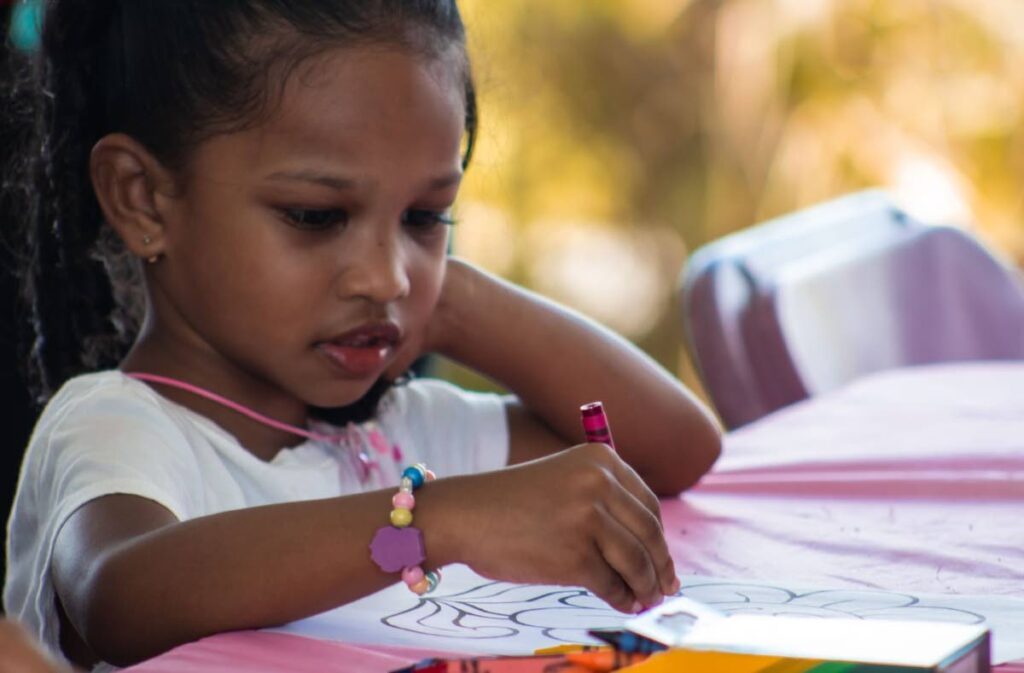Home-schooling the autistic child

DR RADICA MAHASE
Recently, a parent was advised by the principal of a government school to home-school her eight-year-old daughter. The child was in standard one and the teacher said she wasn’t trained to teach her, she was disrupting the class, she couldn’t sit still, she was making weird noises during the class, and a few other complaints.
Since last year, the principal has been trying to persuade the parent to take her child out of school. The parent broke down completely; she did not understand why the school was not willing to work with her daughter. When she asked about an aide, she was told, “There are children who are in standard four and five and they need an aide more than your daughter.”
The principal wrote a letter for the parent, stating that she is home-schooling her child, and told her to sign it. Very frustrated and unable to get any assistance from Student Support Services, the parent gave in and signed the letter and her daughter became another statistic.
The Ministry of Education says the rationale for its policy on home-schooling is, “In Trinidad and Tobgo, an increasing number of parents are exercising the option to home-school their children. The reasons identified include for parents’ choice to opt-out of the general education system.”
This rationale was certainly not developed with autistic children in mind, given that in the majority of cases it was never an option for parents. The common narrative in the last few years is that of parents being forced to take their children out of public schools because of the failures of the general education system.
If the system was addressing the needs of special-needs learners through the provision of aides, a curriculum and assessment methods geared towards differential learning amongst others, then maybe the formal education system would be more suitable for all children.
Indeed, there is no doubt that we need a policy on home-schooling. In a country which is statistic-starved, we certainly need to account for all our children, neurotypical and special needs/disabilities, and the registration process should address this. Too many children fall within the cracks while some are not accounted for.
Likewise, tracking the children’s progress is a good idea, to ensure that every child has an equal access to opportunities for development. Thus, the policy’s goals of developing a registry of homeschoolers and ensuring the rights of the child to a suitable quality of education are fair and much needed.

Photo courtesy Alex Singh - Alex SIngh
However, other than that, this policy is not one that is realistic and it certainly does not take learners with autism and other special needs into consideration.
First, in order to register their children, parents must submit the curriculum that will be followed and they are advised that “the Ministry of Education’s curriculum should be followed.” In the first place, the reason why so many parents are forced to home-school is because we have a curriculum that already does not cater to differential learners. Not all children can cram and pass exams. Not all children can keep up with the academic work outlined in the curriculum. Not all children learn in the same way and at the same pace.
What is most worrisome about this policy is the stipulation that if the application is not approved for a child with special needs, then parents will be “supported in accessing placement at a public special school or at a private special school for which fees are subsidised by the Ministry of Education.”
Let’s get this right: children with special needs will be placed in the same public school system from which they were forced to withdraw in the first place? Or, if it’s a private school, how much of the cost is to be subsidised?
Currently, parents are held to ransom by private schools which are charging as much as $10,000 a term and then telling parents they need to pay for an aide and supplies, separate from the term fees. Is the MoE aware that many private schools only accept children who function on a higher level, and that private schools also ask parents to withdraw their children?
There are other stipulations of this policy which show that the level of research and consultation needed in policymaking by the MoE is seriously lacking. In the end, one has to question if this is a policy that is thinking about what’s best for the children, or one that is meant to scare parents so that they will keep their children in a school as various parts appear more punitive rather than supportive.
Ultimately, key areas of this policy need to be addressed urgently as they do not reflect the realities of the present education system. Maybe, if we focus on fixing our education system, then parents might be less inclined to home-school their children and happy to have their children in public schools?
Radica Mahase is the founder/director of Support Autism T&T

Comments
"Home-schooling the autistic child"